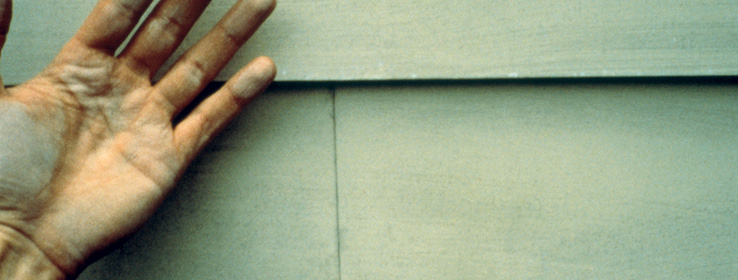DESCRIPTION
The formation of fine, white powder on the surface of the paint film due to weathering, which may give the appearance of color fading. Although some degree of chalking is normal and can be a desirable way for a paint film to wear, excessive paint film erosion may result in heavy chalking.
POSSIBLE CAUSE
Oil-based paints tend to chalk more than latex formulations.
Use of a low-grade, highly pigmented paint.
Factory-finished siding can develop an excessively thick chalk layer and may require power washing to ensure complete chalk removal.
Use of an interior paint for an outdoor application.
Not adequately sealing a porous surface.
Over-thinning a coating (e.g. paint or stain).
Spreading the paint too thin.
SOLUTION
Remove chalk by washing or power washing the surface with an appropriate cleaner. If some chalk remains after first washing, then wash again for complete removal; scrubbing may be necessary. Rinse well with clear water. Allow to dry thoroughly.
Brick areas that are stained by "chalk run-down" should be scrubbed with a stiff brush and detergent. Professional cleaning may be required to remove this staining.
For the best resistance to chalking, use higher-quality acrylic coatings.
EXTERIOR
PRIMER
(if needed)
Loxon® Conditioner
Exterior Primer
Loxon® Concrete & Masonry Primer/Sealer
All Surface Enamel Primer
SUGGESTED FINISH
Duration®
SuperPaint®
A-100®
WoodScapes®
or reapply the same coating




